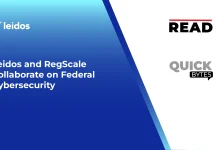Esperanto Technologies™, the leading developer of high-performance, energy-efficient artificial intelligence (AI) and high-performance computing (HPC) solutions based on the RISC-V instruction set, announced the signing of a Memorandum of Cooperation with Rapidus, a new Japanese company that is a burgeoning leader in advanced 2nm semiconductor manufacturing with a strong focus on enabling faster time-to-market (TTM). The initial focus of the partnership is to enable future semiconductor designers to develop more energy efficient solutions for AI inference & HPC workloads for data center and enterprise edge applications. This will help alleviate what many are beginning to call an unsustainable growth in energy consumption by data centers globally, due in part to the increasing power required by many of today’s AI and HPC chips.
In their recent report “Electricity 2024,” the International Energy Agency (IEA) stated, “Data centers are significant drivers of the growth in electricity demand. After globally consuming an estimated 460 terawatt-hours (TWh) in 2022, data centers’ total electricity consumption could reach more than 1,000 TWh in 2026. This demand is roughly equivalent to the entire electricity consumption of Japan. Updated regulations and technological improvements, including energy efficiency, will be crucial to moderate the surge in energy consumption from data centers.”
Ben Bajarin, CEO of Creative Strategies, a leading independent research and analyst firm, said, “CPUs and GPUs have played a key role in fostering the boom in the artificial intelligence market. However, the increasing power consumption of the latest chips is contributing to a near-term crisis. For example, energy consumed by Generative AI processing is projected to reflect close to 80 percent of all power used in U.S. data centers by 2027. Clearly, a new industry approach is required.”
Also Read: Fidelity Building Services Group announces acquisition of Compressor Energy Services
Rapidus began construction of IIM (Innovative Integration for Manufacturing) in Chitose City, Hokkaido, Japan in September 2023. This will be that country’s first silicon foundry to produce state-of-the-art logic semiconductors at the 2 nanometer process node and beyond, due in part to its close partnership with IBM’s Albany Nanotech Complex in New York. Rapidus plans to start operation of a pilot production line at IIM-1 (the first fab) in April 2025, and begin mass production in 2027.
“Rapidus represents a new approach to leading-edge semiconductor manufacturing, and we are very impressed with the direction and speed at which they are operating,” said Art Swift, president and CEO of Esperanto Technologies. “The strategic partnership with Rapidus plays a key role in our expansion plans, particularly in Japan. Along with our other partners there, we hope our new relationship will extend the benefits of our energy efficient technology to a broader set of AI chip designers in the future.”
“As part of our corporate philosophy, we will commit ourselves to further innovating toward a truly green society,” said Dr. Atsuyoshi Koike, president and CEO of Rapidus Corporation. “As we enter the age of full-fledged AI, it is imperative to design and manufacture semiconductors with superior energy-saving performance, and we believe that this collaboration with Esperanto is a major step toward solving this issue.”
SOURCE: Businesswire




